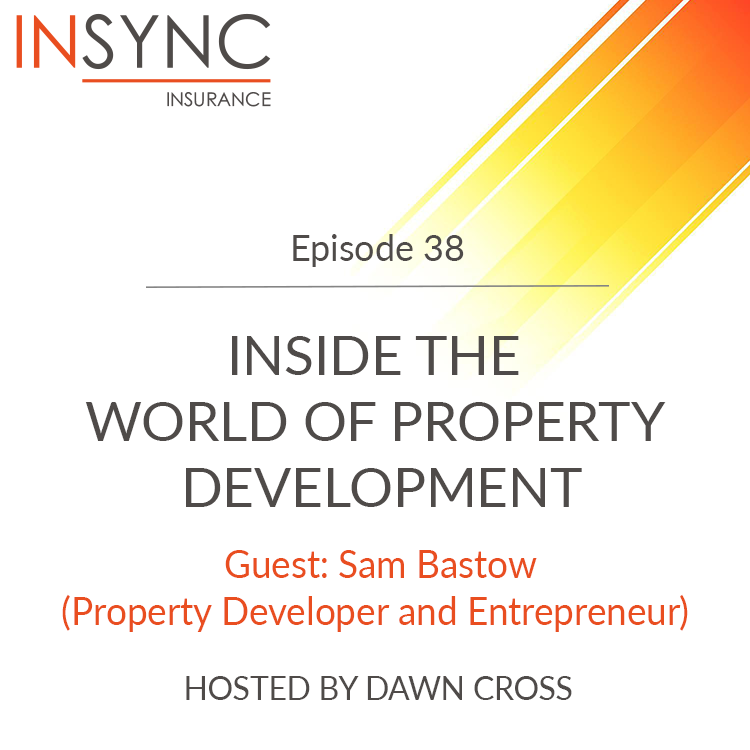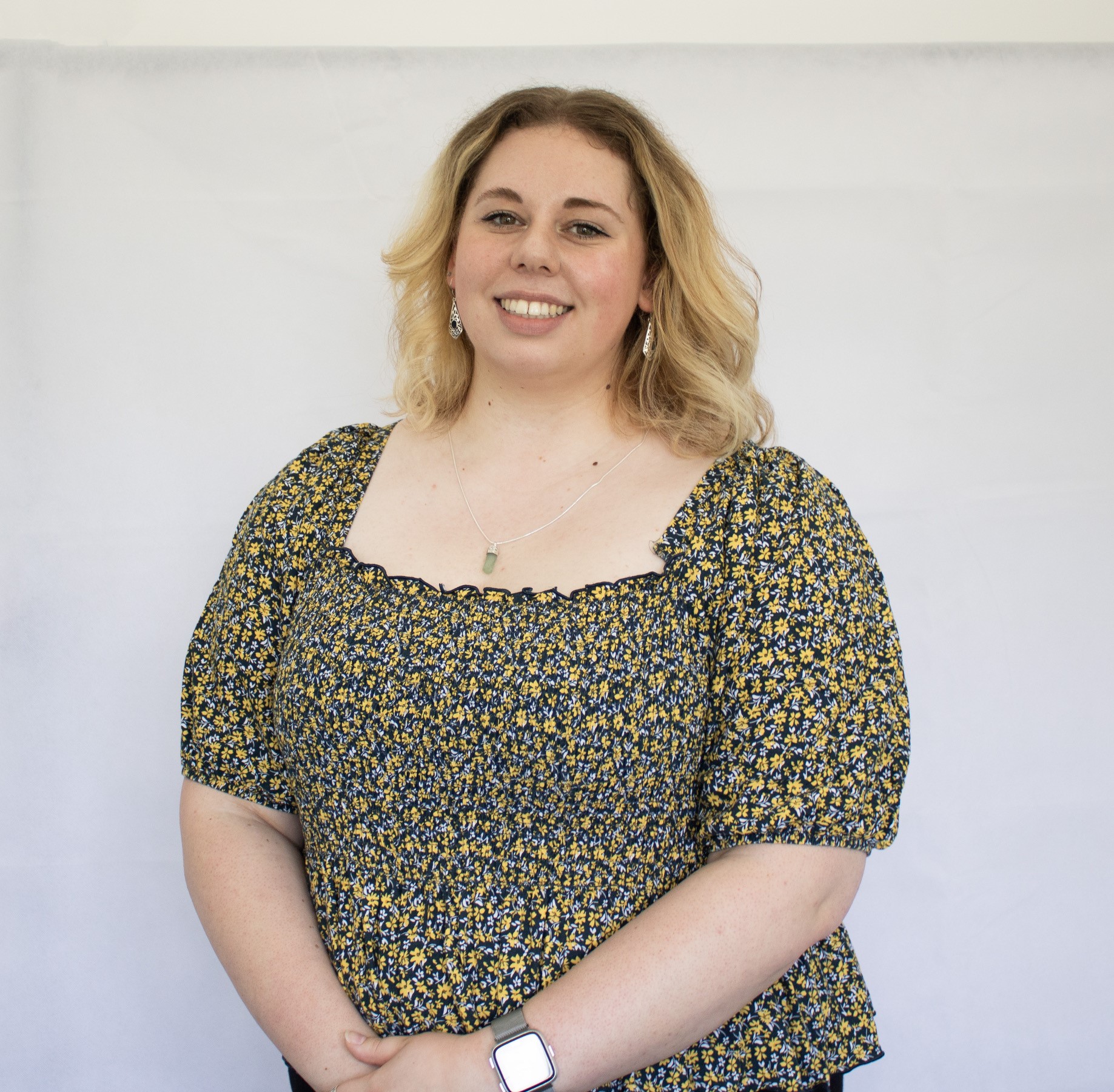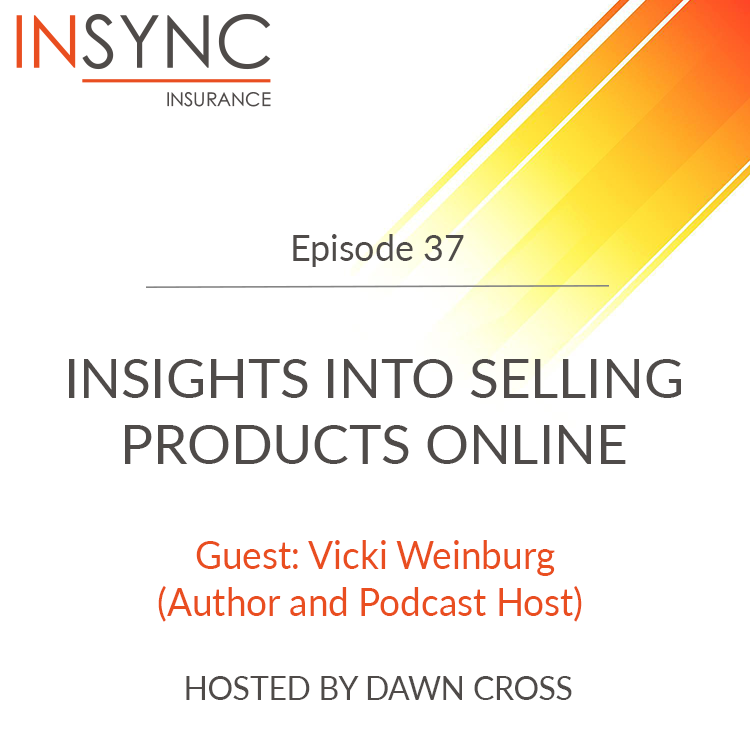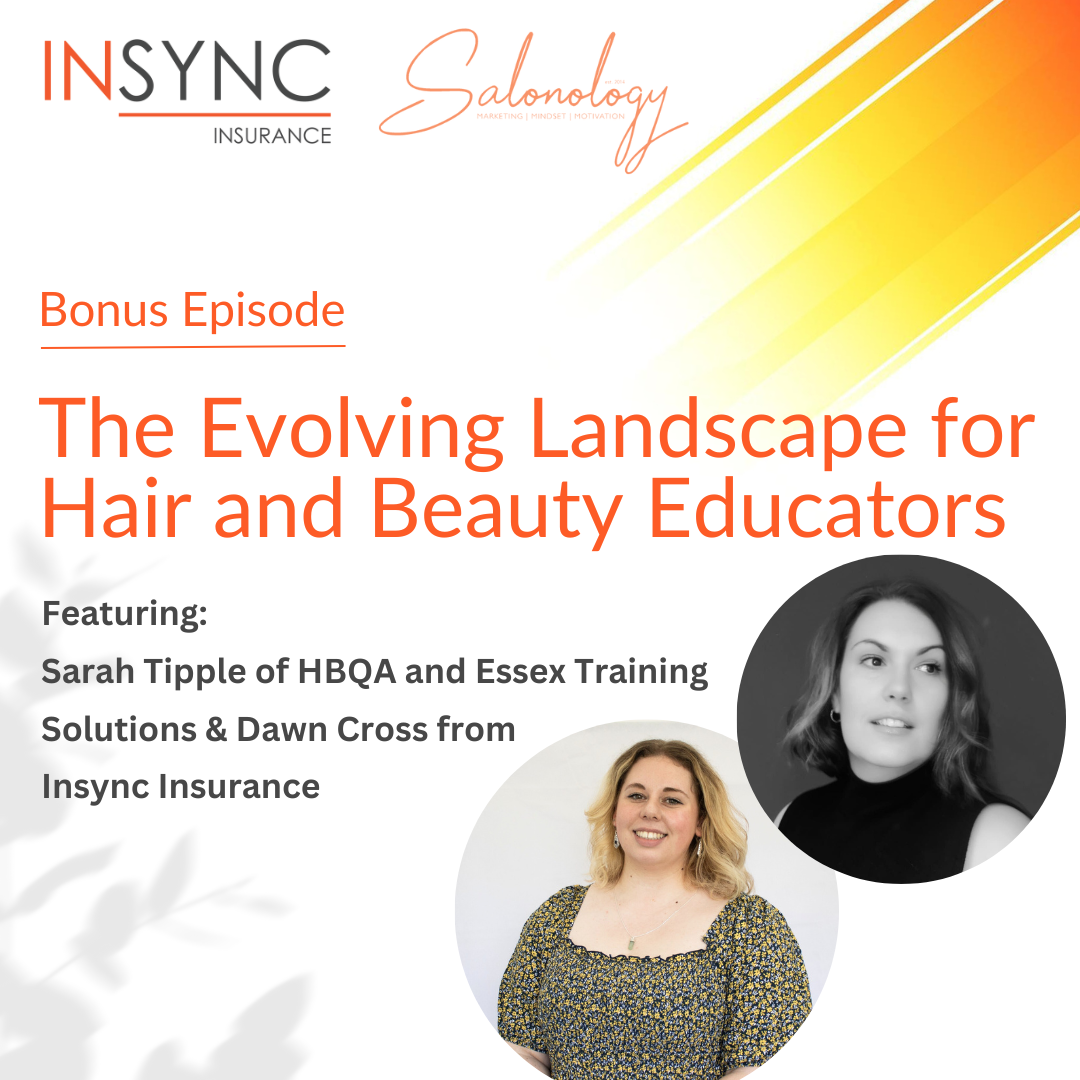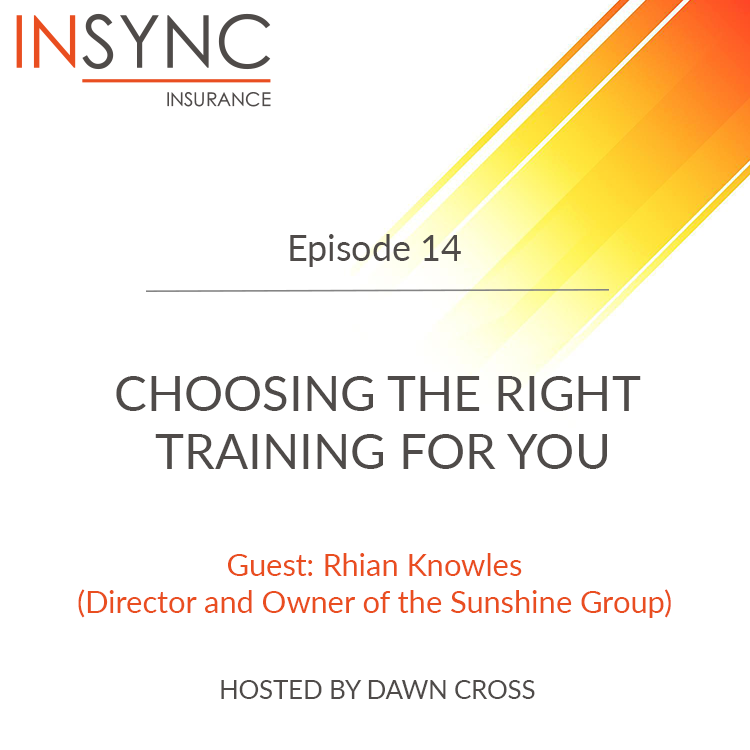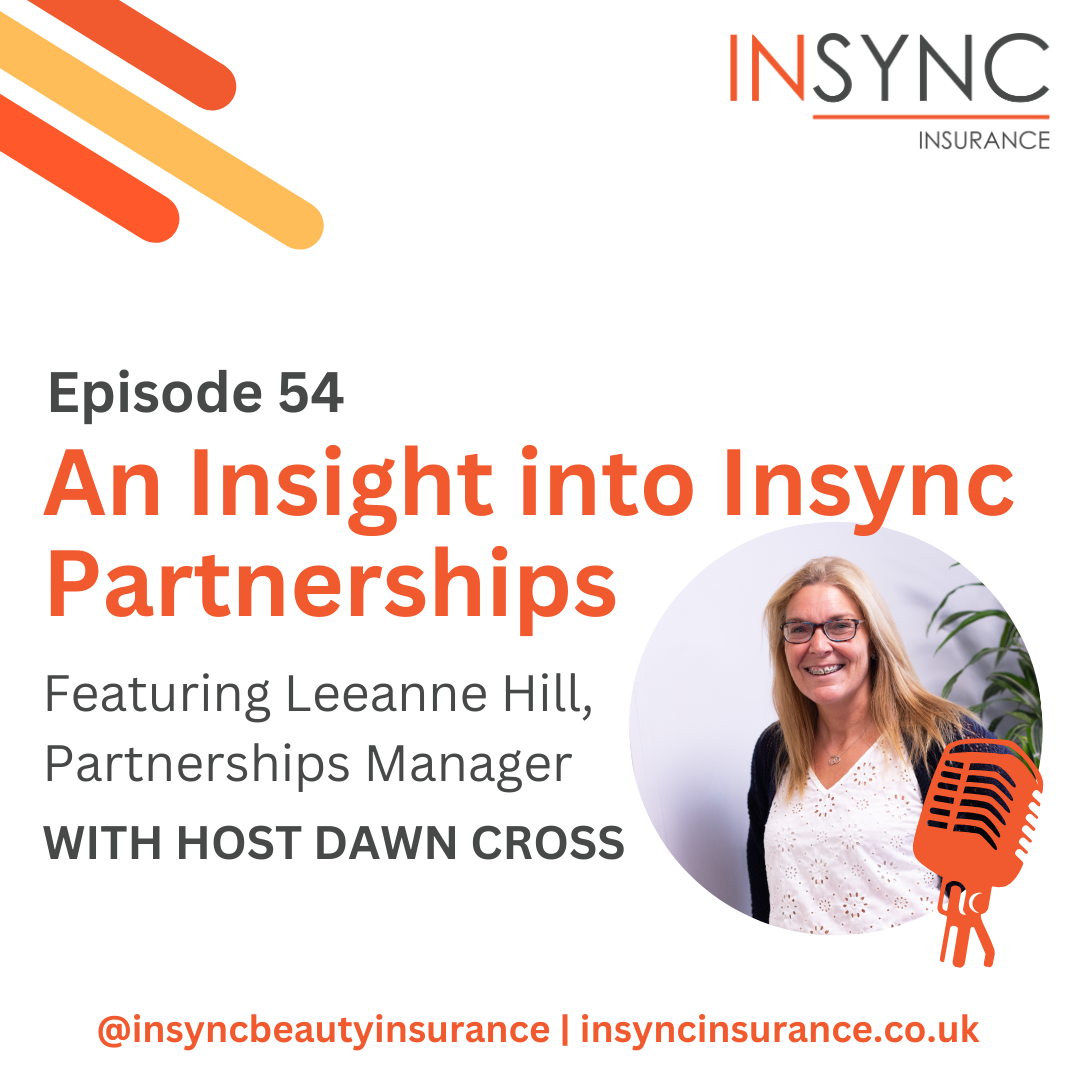Episode Transcript
[00:00:01] Speaker A: Welcome to the NSYNC Insurance podcast. I'm your host, Dawn Cross, and today I'll be discussing property development with Sam Bastow, property developer and entrepreneur.
If you enjoy our podcast, make sure to leave a rating on your favorite podcast directory.
[00:00:18] Speaker B: Awesome. So if I could get you to start off, could you introduce yourself and what you get up to in your job?
[00:00:24] Speaker C: Hi, I'm Sam Bastow, director and founder of Tudor Gate Homes Limited. I've been in property since 2018, developing, investing and finding land where I'm based in the West Midlands. I've carried out numerous projects from new builds, refurbs and commercial conversions. Anything from one to four units at a time. And they've all been funded by way of my own cash. Finding private investor finance and using banks. The next goal for us as a business to move on to sites up to around ten units at a time. So moving up from the one to four, up to around ten.
And whether we build them to sell or to rent, I've always prided myself on providing awesome value, basically partnering with private investors. I offer access to promising opportunities by leveraging my network to source deals and build them out. And as it actually happens at this moment in time enough, I've got more deals than I do available cash. So yeah, it's me and the business in a nutshell.
[00:01:41] Speaker B: That's brilliant. How did you get into the business to begin with, a site you were always interested in, or did you maybe stumble into it?
[00:01:49] Speaker C: So I've always been interested in property.
Back when I was at school, I used to set my alarm for homes under a hammer so I could make sure that I was watching the latest episode. I know it gets a lot of stick, but I don't watch it now because I now realize that a lot of it just isn't true. But I loved it at the time and I credit that to giving me the urge to get into property. And then for the first project that I did, it was a case of having some spare money, educating myself, sort of learning about development and deploying that capital into a project.
[00:02:38] Speaker B: That sounds amazing. I love how you were kind of interested, even just from like a tv program. I think a lot of people, their journeys are so interesting when it comes to what they do today. And sometimes.
[00:02:50] Speaker C: Yeah.
[00:02:50] Speaker B: Like, tv can be actually so influential towards your dreams.
[00:02:55] Speaker C: Yeah, yeah. I'll forever remember Martin Roberts and that show. I've got a lot to thank him for.
[00:03:04] Speaker B: That's brilliant. You'll have to tell him when you, if you ever meet him, be like, you know, you're the reason why I'm, you know, doing so amazingly right now.
[00:03:12] Speaker C: Yeah, yeah. My first tv hero.
[00:03:16] Speaker B: It's brilliant. So today we'd like to discuss a bit more, kind of, about property development. Obviously you work with a team, but there might be some people or individuals out there that would like to do it or maybe are looking into it. You know, the start point, you know, or we're in the midst of thinking about it, you know, there's a lot. There's a lot going on. So my first question for you is, what does anyone looking into development need to bear in mind? Because obviously there's like a myriad of things they need to think about and there's definitely things that I think people forget as well.
[00:03:51] Speaker C: Yeah.
There's so much that you need to know and be aware of.
I think if you're looking to get into development, the first thing to know is you'll know numbers. It's so important.
Profit seems to be a dirty word, but we do it for profit. That's how business works. And just because something has got planning permission doesn't mean to say that it's an opportunity. There's plenty of sites that have got planning, but they don't get built out because the numbers don't stack. So the design might be wrong, the build might be too high, the values in the area might not be strong enough. So that's definitely one thing to be aware of and also the time scales.
Think of a time and double it because it will take longer than what you think it will. There's no getting around it. Planning authorities take a long time at the moment and I can't see that changing.
Builders and contractors are so busy, you've got to work around them to a certain extent.
So costs, time scales, just basically make sure you try and nail those as well as possible.
[00:05:13] Speaker B: So definitely kind of give it a bit of extra room rather than as tight as you could get it, sort of thing.
[00:05:19] Speaker C: Yeah. So on a new build project, you've got to allow around a 10% contingency. The lenders like to see a minimum of five, but it's good to allow ten to have that extra breathing room. And then on something like a refurb or a commercial to residential conversion, you could be allowing between ten and 20% as a contingency. And then that gives you that buffer then to cover anything that not might but will not go to plan.
[00:05:53] Speaker B: Definitely.
You know, something kind of arrived in my head whilst we were chatting. I was wondering, obviously, if there's, for example, people considering doing either a new build or doing a conversion or renovation of a current build. What would you say? I guess might be technically easier. Say that very lightly, because there's going to be problems no matter where you go. But, like, you know, what's the pros and cons of, for example, renovating or converting, like a current build that's already there.
[00:06:23] Speaker C: Okay, so I'll start with the console. Get that out of the way first.
[00:06:28] Speaker B: Yeah.
[00:06:28] Speaker C: With a commercial conversion, sometimes you just don't know what you're going to come across. There could be asbestos that's been previously encapsulated that you don't see, and then you've got an extra cost to get rid of that.
The con. Sorry, the pro and positive of the commercial conversions are you're taking a building that is already standing and repurposing it into a more useful space. So you're not then looking to develop on brand new land that local people would rather have it kept as a field.
And if you're looking to get into it, you need to make sure you've got a good team around you. You're not going to know everything from the off, and you certainly won't know everything 1020 years in. It's a continuous learning game.
But if you've got the team of professionals around you that are well experienced, like an architect, a contractor, plumber, whatever, you name it, just get the people around you that can help support you in getting that property from nothing out the ground or converting it into something that's habitable.
[00:07:54] Speaker B: And I think it's really great. I guess from an outside perspective, I'm not a developer myself, but being able to maybe bring back value to a local place as well, because, you know, some people might actually, the locals, although it doesn't have a complete and utter say over what you get up to, obviously, you'd rather probably please them than annoy them. Then there could be problems down the road there. So being able to kind of rejuvenate a space or even kind of bring more value to the street, the road that you're at, I think, is something that people tend to forget about.
[00:08:26] Speaker C: Yeah, that's a very good point you raise.
It's about finding that happy medium. Obviously, the project needs to be viable, but developers aren't bad people.
We're conscientious. We want to do good. We want to create homes for people to live in. We're not there to destroy the countryside. That's not what we wake up in the morning and think, right, let's go and cut down ten oak trees.
We would rather build or convert something that's already standing and make use of that space as opposed to going out and paving over the countryside.
And you've got to work with the local people because otherwise they can cause issues, whether they just inconsiderately, accidentally on purpose park a car in the wrong place to stop a vehicle, a delivery vehicle getting into sight, or they can just cause problems. So it's always good to keep them on side and consult them, ask them what they would like to see done and see what you can do in order to help them get what they want. Turn an eyesore of a building into something that's more desirable.
[00:09:53] Speaker B: Definitely. I think, as well, you know, people forget they could be potential customers in the day, whether it's to purchase an apartment, if you're converting into an apartment complex, or, you know, whether they would actually maybe want to move in and rent as well. So, like, you know, having those good relations, I think, is always really key.
And like you said, you know, obviously, if not, they can be really fickle and make your life very difficult when you're just trying to do your job and, you know, cause issues or, you know, raise random complaints with the council and the council may stop you. Like, I don't know, they could go on endlessly. I'm sure you've got a few stories yourself occasionally from fickle people.
[00:10:32] Speaker C: Yeah, yeah.
I remember building a couple of houses once in a town close to where I live, and the neighbour just didn't like the fact that there were some homes being built.
He himself lived in a house, so at one point that would have been new.
So the argument of, I don't want any houses near me, I don't think that washes because they live in a house. Everybody deserves a home that they can afford and feel safe in.
There's more to property than just. Just building a house.
People feel secure. They've got a safe place where they can make a family and push on in their lives.
That security and freedom of having your own home, I think, is. It's so much more than just the bricks and mortar.
[00:11:31] Speaker B: Definitely. Yeah. So obviously, we were speaking about kind of current builds doing renovations. What would be the pros and cons for obviously doing a new build then from scratch?
[00:11:42] Speaker C: So the pros are, it's a lot easier to forecast your costs once you're out of the ground. Then there should be nothing that comes as a surprise.
You know, how many bricks you'll use, how many blocks you'll know the spec before you begin. So there should be no unexpected costs to arise once you're out of the ground.
And it's easier in a way, and quicker, I'd say, than a. Than a conversion or a refurb.
The cons. And I suppose this. This goes for any type of development.
Very capital intensive.
Your cash flow is just the wrong way around. So you can constantly be putting money into a project and it can take 1224 months before you see any return on your capital.
And the public can be a con as well. Like we've mentioned, they can just on purpose, I think, just be a little bit awkward. But they can also be a pro.
I've done some sites and the neighbors have been absolutely fantastic. They've led us connecting to their water for a temporary supply. They've just been great. Brought snacks, drinks, you name it. Some have been absolutely fantastic. So, yeah, I don't want to give people the wrong idea that every neighbor is a bad neighbor.
Yeah. So it's definitely a people's game. It's more. More people than property, I'd say, at times.
[00:13:33] Speaker B: Wow, that's quite intriguing. Is there anything else you'd like to add before you wrap up the episode?
[00:13:39] Speaker C: I think anyone that's considering getting into property, they should.
They should give it a go.
Make sure that you know what you want to do. Get yourself educated, whether that's on YouTube or Facebook or of course, there's lots out there now to help you. And it's a very fulfilling career.
Like I said, there's more to it than just building a house. At the end of the day, you're giving somebody a home, one that they can raise a family in. And it's creating something that will last forever.
Certainly the properties that I'm developing will outlive me, so it's nice to leave a little bit of a legacy as well.
If you're thinking about doing it, just. Just get out there and do it.
Nothing ventured, nothing gained. Give it a bash.
[00:14:39] Speaker B: I love that advice. Brilliant. Well, thank you so much for coming on and spending a bit of time chatting with us today.
[00:14:46] Speaker C: Yeah, no worries, dawn. It's been a pleasure.
[00:14:49] Speaker A: Thank you to my guest today, Sam Bastow, for chatting about his expertise and experience in professional development. If you're interested in the services, please click the links in the description.
I have been your host, Don Cross, and tune in next week for another episode.
NSYNC is one of the UK's fastest growing insurance providers, offering comprehensive cover for SME's and self employed across the UK. Our expert team can tailor your insurance to meet your individual business needs and compare prices. From our Lloyds of London approved partners, we offer a five star service and have been FIFO platinum trusted winners five years in a row.
